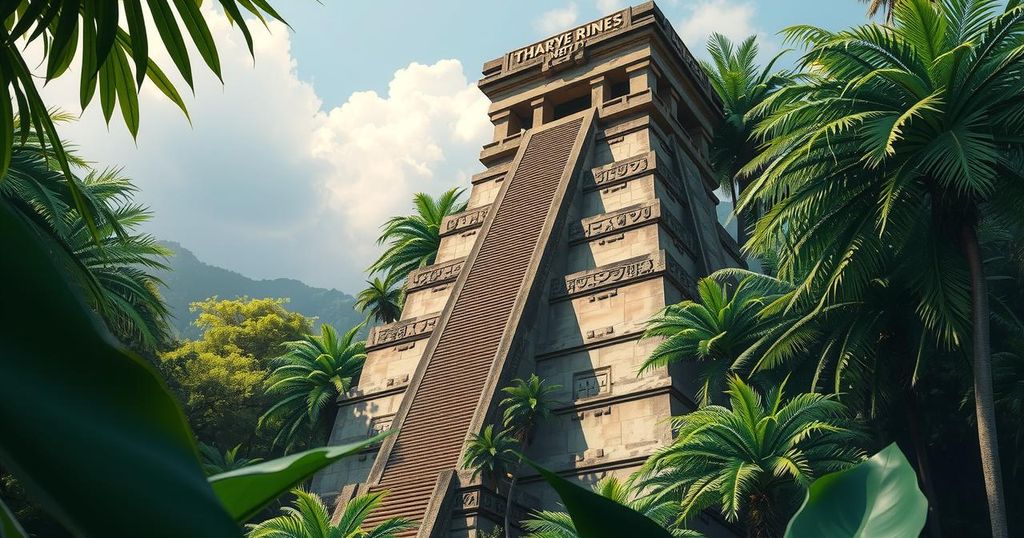Tourist Faces Backlash After Climbing Forbidden Mayan Temple in Mexico

A German tourist was arrested for climbing the forbidden Temple of Kukulcan in Chichen Itza, Mexico, while a crowd expressed their outrage during the incident. Climbing the pyramid is illegal due to past damages and safety concerns, with strict penalties enforced to preserve the UNESCO World Heritage site. The incident reflects ongoing challenges with cultural preservation among tourists globally.
A recent incident in Mexico involved a tourist who was arrested following his unauthorized ascent of the historical Mayan Temple of Kukulcan located in Chichen Itza, Yucatan. Video evidence from Sky News and the Daily Mail shows a German man climbing the temple on March 20, while locals protested his actions vocally, warning him against trespassing. Shouting remarks included “You are not allowed to go up the temple!” as onlookers expressed their disapproval.
A security guard was observed pursuing the tourist as he reached the temple’s summit, at which point the gathered crowd responded with boos. Shortly thereafter, members of the Mexican National Guard apprehended the tourist, visibly leading him away as he faced aggression from the crowd. Reports indicated the presence of approximately 8,000 to 9,000 visitors at the site during this incident, coinciding with the spring equinox celebrations.
Chichen Itza, a significant archaeological site recognized for its historical value, draws thousands of tourists each spring equinox. Built over a millennium ago, the Temple of Kukulcan serves as a timekeeping structure for the ancient Mayans, designed to display a light and shadow effect during specific seasonal transitions. As a UNESCO World Heritage site, it is prohibited for visitors to climb the pyramid due to previous damage caused and the dangers involved.
The official website emphasizes that climbers face steep fines and potential imprisonment under Mexican Federal Law on Monuments and Archaeological Zones for violating this prohibition. It asserts, “The decision to ban climbing ensures that the pyramid remains intact for future generations.” This policy aims not only to preserve the temple but also to protect visitors from the inherent risks associated with climbing this monumental structure.
In a related context, a similar incident occurred in Japan, where an American tourist was arrested for reportedly defacing the entrance to the Meiji Shrine by carving letters into a traditional torii gate. Such acts highlight the need for respect towards historical heritage globally, underscoring the serious implications of disregarding cultural preservation laws.
The incident involving a tourist climbing the forbidden Temple of Kukulcan at Chichen Itza underscores the significance of respecting cultural heritage sites. Climbing these structures is not only illegal but also poses risks to both the monuments and visitors. The enforcement of a ban on climbing aims to ensure the preservation of such historical sites for future generations, reinforcing the mutual responsibility of tourists and locals in safeguarding their cultural treasures.
Original Source: people.com






